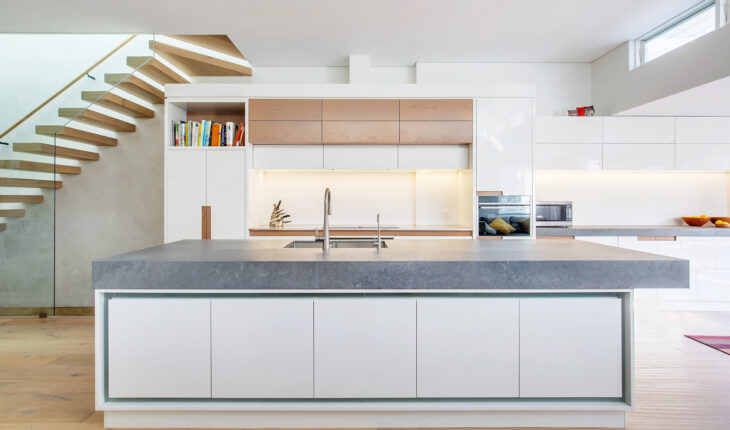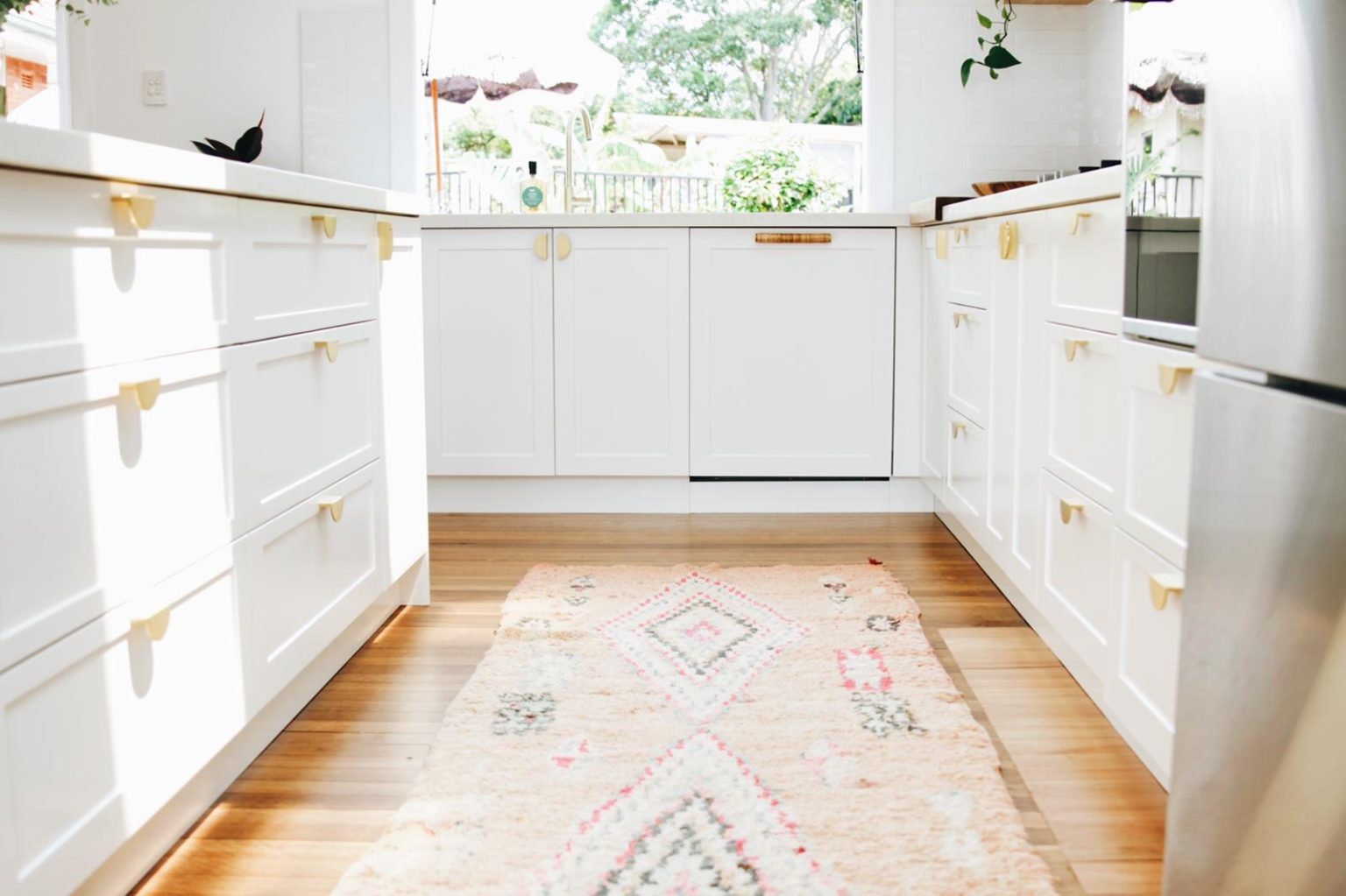Google is the first place many renovators turn for help when planning a new kitchen. But the fact is, the answers you get don’t always hit the mark. To clear up the confusion and put kitchen renovators on the right track, Mike Turner, a kitchen renovation expert and managing director of Nouvelle Designer Kitchens in Sydney, answers the six most-Googled questions.
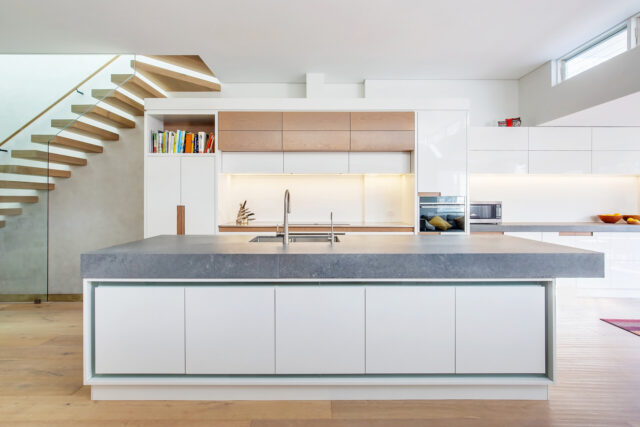

- How much do kitchen renovations cost?
Expect to pay between about $20,000 and $40,000 for an entry-level kitchen and $50,000 to $70,000 or more for a high-end custom kitchen, depending on the design, finishes, size and complexity. These prices may not include demolition of your old kitchen, installation of your new one, disconnecting and reconnecting electricity and plumbing, or the cost of appliances or trades, which can add another $10,000 to $15,000 or more to the cost of your kitchen, depending on exactly what you require.
At the lower end of the scale, you’ll typically get off-the-shelf cabinetry in standard sizes and basic finishes, like stapled chipboard and melamine, with benchtops in laminate and low-cost acrylic. At the upper end of the scale, you’ll get a custom kitchen designed by a trained kitchen designer that is tailored to your style, kitchen size and lifestyle needs, using premium joinery finishes and benchtops in natural stone or porcelain, plus customised storage. On-site project management, trade teams, documentation, good warranties, full insurances and after-sales service will also generally be included.
- How long do kitchen renovations take?
A straightforward kitchen renovation takes around six weeks. This includes two to three weeks to strip out and prepare the site and services for installation and to install your new kitchen cabinets, then two weeks to prepare and install the benchtops and splashback. But several factors can add to the timeline. For example, if you’re putting your kitchen in a new extension that needs council approval, you delay making decisions on the finishes or layout, you make changes late in the planning stage or during installation, or there’s extreme weather that holds up trades. Stack up a few holdups like these, and a new kitchen can run to over six months, especially if it’s not properly coordinated and managed, and you don’t have adequate support or backup.
- Who does kitchen renovations?
Kitchen renovations can be handled by a range of professionals, including kitchen and interior designers, joiners, carpenters, cabinetmakers, architects and dedicated kitchen renovation companies. You can also fully or partially do it yourself using off-the-shelf joinery from places like IKEA and Bunnings.
Whether you’re buying off the shelf or hiring a design professional, check the completed projects and client reviews on the company or supplier’s website to ensure their style and services suit your needs. Also, be sure to ask exactly what the kitchen price includes – for example, does it include a warranty and insurances, will they handle the install and coordinate and project manage trades, will they design you a completely new kitchen rather than just dress up existing cabinetry with new door fronts and benchtops?
- How do [you] DIY kitchen renovations?
A DIY kitchen renovation might seem like a great way to save money, but it comes with a long list of tasks and potential pitfalls. Without a designer, you’ll need to create the layout yourself, which may lead to less than optimal results. Sourcing materials and managing suppliers will require significant time and effort, as will preparing a comprehensive budget that includes all materials and trades, from demolition to finishing touches. You’ll also be responsible for hiring, coordinating and supervising each trade, and handling any issues that arise. Whereas, if you hire a kitchen renovation firm or contractor, you’ll get a fixed-price contract, a single point of contact for any queries, a streamlined, project-managed process and centralised warranty and insurances, saving you time and stress.
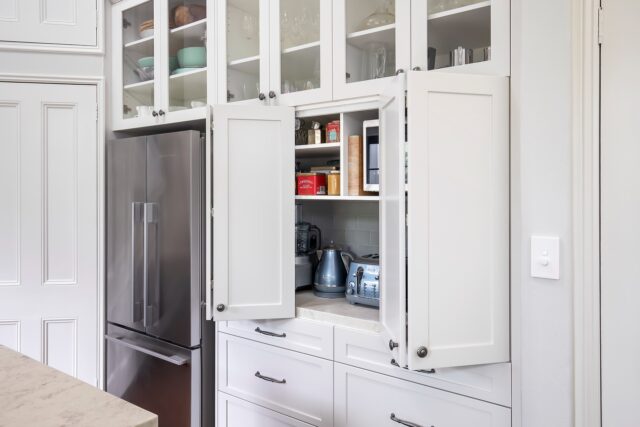

- Why do kitchen renovations take so long?
Kitchen renovations are complex projects requiring careful planning, skilled trades, and coordination across multiple stages. Design planning can be time-consuming, especially if you’re unsure about materials or layout. Once the project begins, various trades, such as demolition, carpentry, electrical, plumbing and tiling, need to be scheduled and they are often well in advance. Material availability can also cause delays.
Stone benchtops take longer, as cabinetry must be installed first, then a stonemason measures, fabricates, and installs the benchtop before the splashback can be done. Laminate benchtops, installed by carpenters, are faster as adjustments can be made on-site.
If your kitchen is part of a new extension, you may need council permits, which can add to the timeline. Weather conditions, like heavy rain, can impact progress too, particularly if extensions are involved.
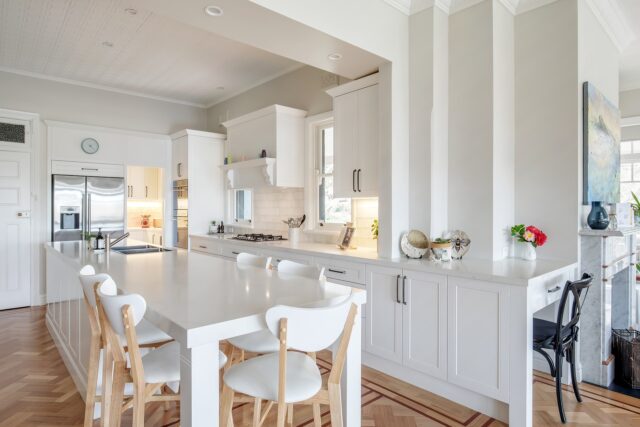

- Where to start with kitchen renovations?
Start by setting a clear budget and defining what you want from your new kitchen. Consider functionality first: what are your cooking habits, storage needs, how do you want to use the space? Next, speak to a kitchen designer or browse online design tools to explore different layout and style options. It’s also worth researching appliances early on as some may require custom cabinetry.
Once you have a plan, make a design appointment and get quotes from at least two kitchen designers or contractors, making sure to read the fine print, such as what’s included in the quote, warranties, insurances and potential extra costs. Also check their lead times for design and installation to ensure they work with your schedule.
Head to the Nouvelle blog for Mike’s more in-depth answers to these six most Googled kitchen renovation questions. Nouvelle Designer Kitchens is a leading home renovation company, transforming homes in Sydney for over 30 years. They specialise in high quality, custom renovations and joinery for kitchens, bathrooms, laundry and storage.

